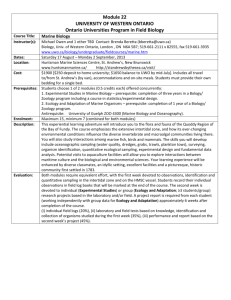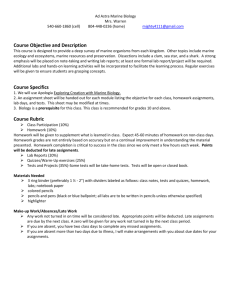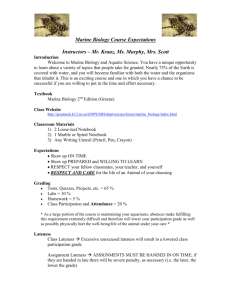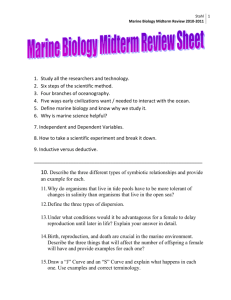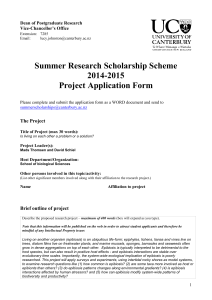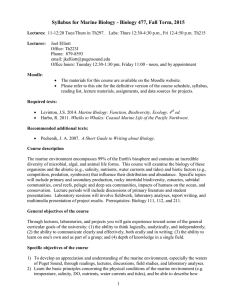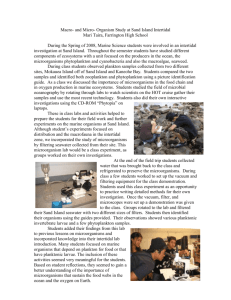Marine Biology Course Outline
advertisement
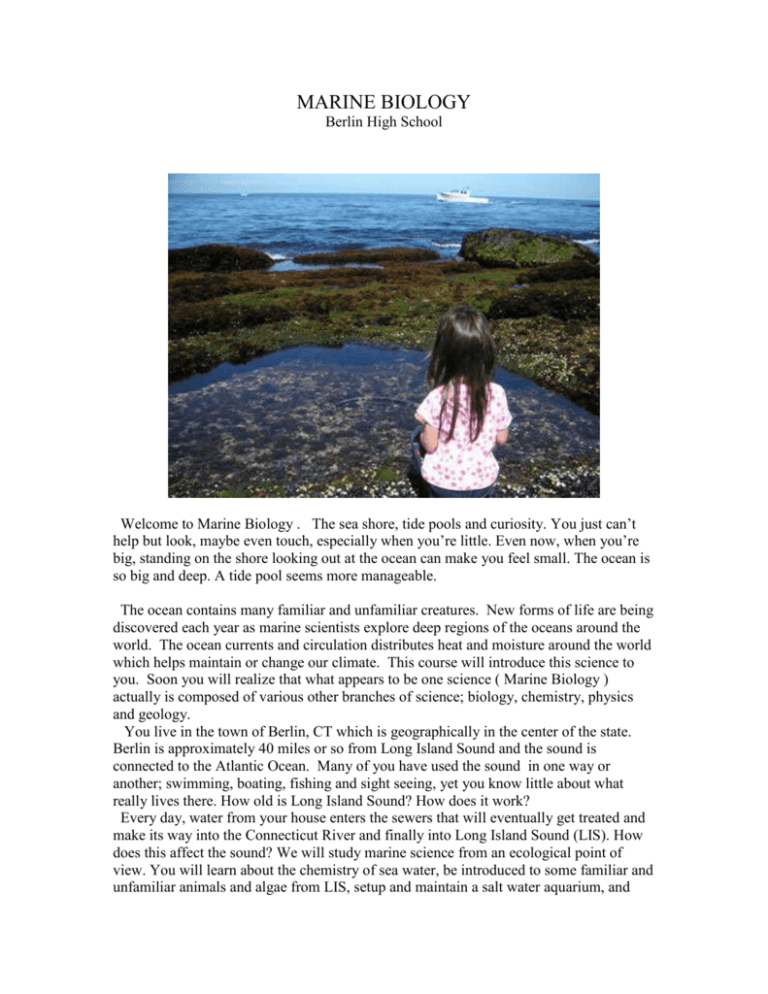
MARINE BIOLOGY Berlin High School Welcome to Marine Biology . The sea shore, tide pools and curiosity. You just can’t help but look, maybe even touch, especially when you’re little. Even now, when you’re big, standing on the shore looking out at the ocean can make you feel small. The ocean is so big and deep. A tide pool seems more manageable. The ocean contains many familiar and unfamiliar creatures. New forms of life are being discovered each year as marine scientists explore deep regions of the oceans around the world. The ocean currents and circulation distributes heat and moisture around the world which helps maintain or change our climate. This course will introduce this science to you. Soon you will realize that what appears to be one science ( Marine Biology ) actually is composed of various other branches of science; biology, chemistry, physics and geology. You live in the town of Berlin, CT which is geographically in the center of the state. Berlin is approximately 40 miles or so from Long Island Sound and the sound is connected to the Atlantic Ocean. Many of you have used the sound in one way or another; swimming, boating, fishing and sight seeing, yet you know little about what really lives there. How old is Long Island Sound? How does it work? Every day, water from your house enters the sewers that will eventually get treated and make its way into the Connecticut River and finally into Long Island Sound (LIS). How does this affect the sound? We will study marine science from an ecological point of view. You will learn about the chemistry of sea water, be introduced to some familiar and unfamiliar animals and algae from LIS, setup and maintain a salt water aquarium, and more. When you finish this course hopefully you will know more than when you started. Not only will you know more about the sound you will also know more about life in the oceans as well. So get ready to learn a lot, do a lot, and get your hands wet. This is an elective ½ year course which will require you to keep a notebook. Your notes will be your most important source of information which you’ll receive from me during class lectures and discussions. In this course you will be expected to participate especially during labs, maintaining marine aquariums, and on the Project Oceanology field trip. Tests and quizzes are open notes. (corrected papers can’t be used during tests or quizzes) The following outline illustrates the topics we will cover in Marine Biology and in the probable order of presentation. Homework, usually in the form of worksheets and a few reports, will be due on the day given by me. Late work loses credit by 10% each day it is late. Weekends count. Your grade in this course will be based on the following system: General Homework Quizzes and Tests Labs, Marine Aquarium, Aquarium Report, Project Oceanology Trip and Field Report 25% 25% 50% American Lobster – Homarus americanus Topics In Marine Biology I (2007 – 2008) I. Introduction to Marine Biology II. The Chemistry of Water and Sea Water III. The Formation of Long Island Sound IV. Estuaries V. Ecosystems VI. Intertidal Ecology: The Rocky Shore VII. Intertidal Ecology: The Sandy Shore VIII. Intertidal Ecology: The Muddy Shore IX. Intertidal Ecology: The Salt Marsh X. Coral Reefs and Mangrove Forests XI. Deep Sea Biology Harbor Seals – Phoca vitulina Long Wrist Hermit Crab – Pagurus longicarpus

